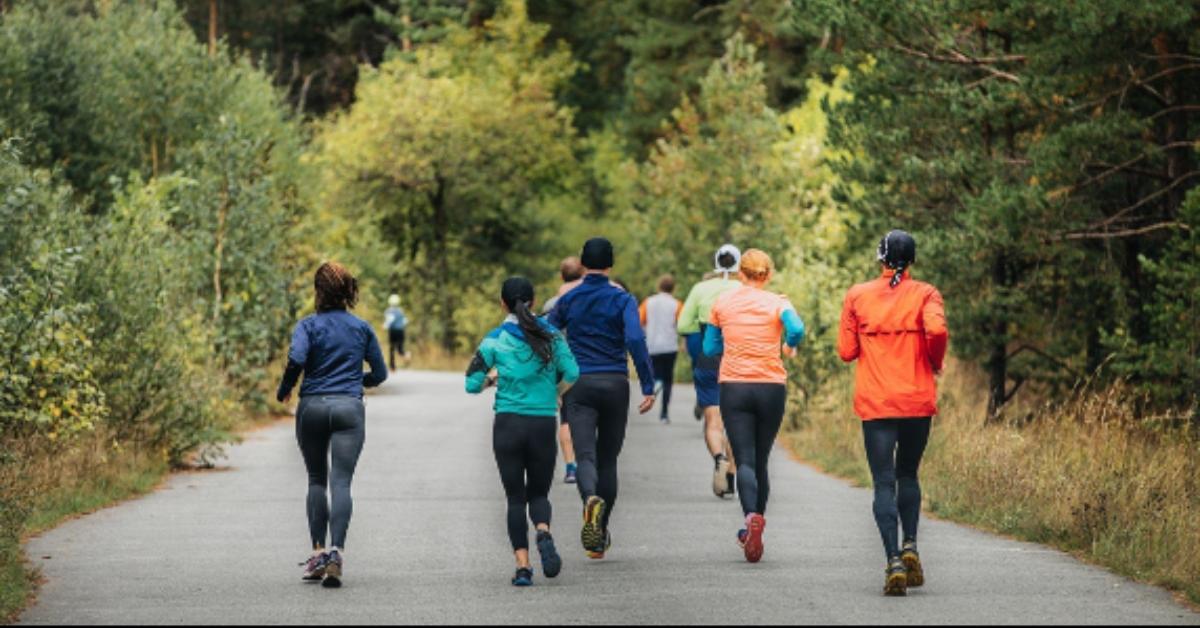The "Running on Plants" Challenge Promotes a Vegan Diet and Active Lifestyle
Published May 24 2023, 12:23 p.m. ET

Tom Pickering, founder of RunningonPlants.org
Avid runner, vegan, and documentary filmmaker Tom Pickering invites the public to join him for a month-long Running on Plants campaign, and adopt both a whole food plant-based diet and an active lifestyle. The challenge begins June 1, and is open to both amateur and professional athletes.
In 2022, Pickering released the documentary I Could Never Go Vegan, which looked at why so many people feel they can’t adopt a plant-based diet, and the positive health effects of eating vegan over eating animal products.
Keep reading to learn all about the Running on Plants challenge, and how to get involved.

What inspired the Running on Plants campaign?
In an exclusive interview with Green Matters, Pickering said his primary motivation for starting the Running on Plants campaign was to help other people reach their fitness potential and take control of their health by adopting a whole foods plant-based diet and taking up running for a month.
“I’ve never felt or performed better than when I’m eating whole plant foods and running regularly,” Pickering says. “There’s something about this combination that allows me to push beyond the barriers I’d previously been unable to break.”
Pickering admits that running is a bit of an addiction for him, but he realizes it's not everyone’s cup of tea. You can still participate in Running on Plants even if you don’t want to run, he says.

“If participants don’t want to run, then that’s fine. Simply moving your body cannot be underestimated,” Pickering says. But if you just try the running, you may grow to like it, he says.
“There’s something about the feeling of improving and gaining fitness that allows you to fall in love with it,” Pickering says.
How can athletes benefit from eating a whole foods plant-based diet?
Adopting a vegan diet can help with your running performance, Pickering says. The benefits of eating plant-based foods include decreasing oxidative stress and inflammation as well as improving glycogen storage, which means more energy for your body, he says.
“All my current fastest times have been achieved since becoming vegan,” Pickering tells us. “I recover quicker, can train more and seem to sleep better — combine that with reduced inflammation and fewer aches and pains, and you can see how you’re onto a winning formula.”
What plant-based foods can help athletic performance?
Knowing what foods will help support your optimal athletic performance and reduce your risk of injury is essential, says Pickering. He suggests the following foods:
Blueberries: "The antioxidants in blueberries can help reduce inflammation and accelerate muscle repair after a workout," Pickering tells us.
Oats: "Oats are rich sources of B vitamins, vitamin E and other micronutrients. They are a great choice to fuel your morning run."
Beetroot: "Beetroot is naturally rich in nitrates, making them heart-friendly and helpful in improving blood flow."
Tofu: "Tofu is an excellent source of protein and contains around 3.5 times less saturated fat than eggs while being a fantastic source of micronutrients, including iron and calcium."
Chia seeds: "Chia seeds are an excellent source of omega-3 fatty acids, a type of fat that your body can’t make but is very important for your health. This anti-inflammatory ingredient also provides excellent fuel for a workout."
How do I join the Running on Plants campaign?
You can sign up for free at RunningonPlants.org to join the 30-day challenge. You’ll need to log a 5k at the start of the month to have a benchmark. Throughout the month, you’ll receive practical advice and guidance, a full training plan, and nutritional tips and recipes. At the end of the month, you’ll log a second 5k to see your improved time.